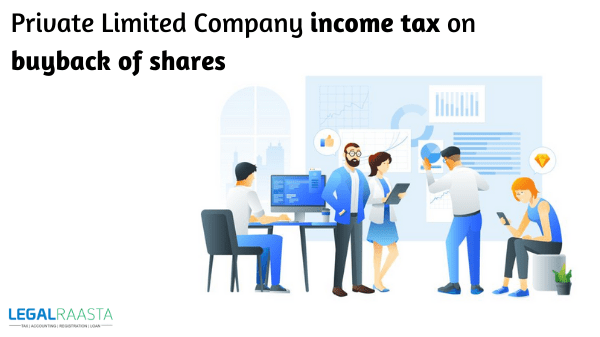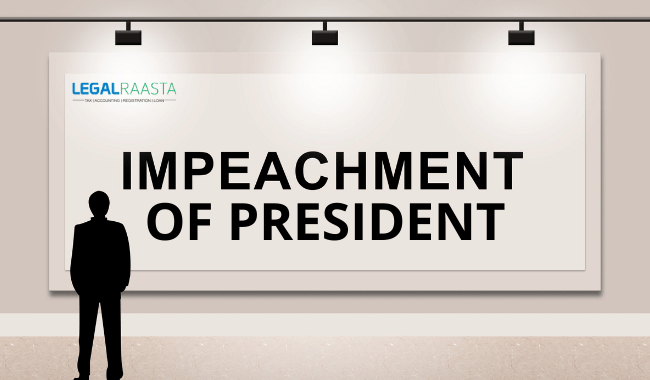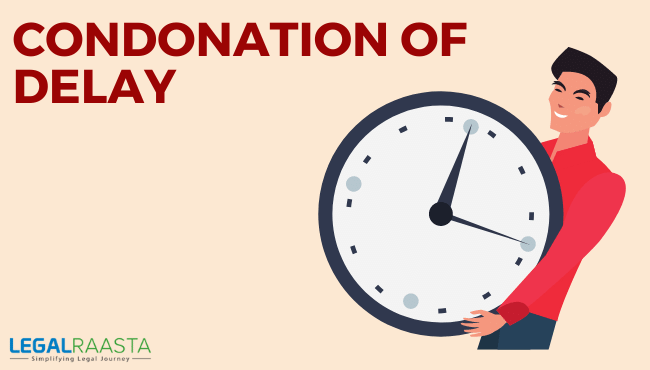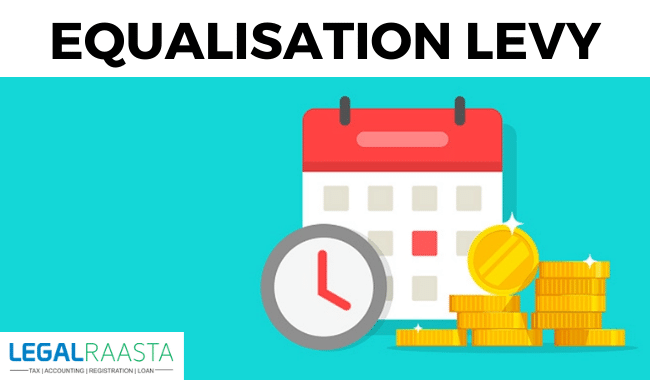Private Limited Company income tax on buyback of shares
The term “buyback” refers to the repurchase of shares by the Private Limited Company that issued them. The corporation pays the stockholders the current market value of their shares and reclaims the previously allocated ownership.
Introduction to buyback of shares
In India’s capital market, the term “buyback of shares” is not a new notion. In recent corporate action, huge amounts of shares have been bought back by cash-rich businesses, especially in the IT sector, such as TCS, Infosys, and Wipro, among others.
In layman’s terms, Buy Back of Shares refers to when a firm buys its own stock from current owners at a price set by the Board of Directors or management, as the case may be. In a separate piece, we’ll go through the administrative aspects of stock buybacks under the Companies Act of 2013.
In terms of income tax, Section 46A and Section 115QA of the Income Tax Act of 1961 govern income tax on share buybacks.
How are buybacks taxed in India in the hands of the shareholders?
What is the company’s repurchase of shares, the tax is calculated? In order to understand the tax consequences, the collateral shares, we must first understand each of the different scenarios, and the tax consequences for each and every one of them. We also need to understand the tax implications of the purchase of own shares, in the case of the council of Europe, and is publicly traded companies, as well as in the direct-purchase mechanism, and the payment mechanism, of the shares on the stock exchange.
Let’s say you bought shares of a Company ABCis Rs 800. After 6 months, you will have accepted the offer of the company to the purchase price of Rs.1000 With a capital of Rs 200 will be treated as a short-term gain on the basis of the shares are held for at least 1 year should be taxed at the 15% rate. This is the easiest part. The real difficulty arises when a buyout in the long-term capital gains in the hands of the shareholders (i.e., more than 1 year, it is planned). Here are the 5 things you need to know about tax foreclosure.
First, let’s look at the companies listed. The method of the redemption of the shares of the company’s own shares, to direct, and to the company’s shareholders of the company. In this case, even if the gain is long-term capital gain tax on the LTCG will be required to spend a minimum of two rates (20%, with the index, which is 10% without indexation). This is because when you go back and forth on the purchase of the shares from the shareholders, and not to the payment made to the shareholders of the company. So, the LTCG taxed on your purchase!
Alternatively, the company can also influence the repurchase of the stock on the stock exchange, and in this case, it is RECOMMENDED that you become subject to the operation of the payment. However, since it is SAID that it has already been paid, in this case, the long-term capital growth, are completely exempt from this rule.
Above and below, shall be issued in cases where the tax authorities, if any, apply only to the shareholders and the company. This will change when we are speaking about the acquisition of a listed company. In this case, the company is obliged to pay the taxes.
In this case, among the unregistered firms, income tax, by the person who benefited from the cancellation of the shares will not be provided, regardless of whether they are the result of a share repurchase is the short-term or long-term.
The whole of the buyout, the situation may have been exacerbated somewhat by the adoption of the Eu’s Budget for 2018, it is now the capital of the capital beyond Rs 1 lakh will be taxed at 10% for the year, but the indexation of benefits. This will take effect from 1 April 2018, however, it is likely that a large part of attracting yolumuzda the repurchase of the shares, in particular, propaganda, with large holdings in the company.
The repurchase of own shares, to be smart, to be used as an instrument of propaganda, and large-scale investors in order to avoid paying a large tax for the payment of the dividend. However, with the introduction of the duty-free shops, LTCG, the indexing of benefits, the benefits of a repurchase of shares may be significantly reduced.
Reasons for Buyback
A company raises share capital by distributing shares and raising capital. Therefore, it will seem contradictory for companies to shop for back the shares and pay money to shareholders. The explanations for an equivalent are often as follows:
- Compact Ownership
Substantial shareholding implies widespread ownership and better costs to the corporate. So so as to serve both the motives that are to bring compactness in ownership and reduce the value of capital, buyback of shares comes into the image.
- Share Price Correction
The market value of the shares is often highly undervalued thanks to various reasons. Hence a buyback supports the correction of the market value.
- Attractive Financials
The buyback of shares also can make a company’s financials look more attractive. With a reduced number of shares, the Earning per Share of the corporate looks more attractive.
- Increased Shareholding of Promoters
Buyback is usually used if the promoters of a corporation are getting to increase their shareholding.
Income Tax Terms for Buyback of Shares
The Revenue Tax laws relating to share buybacks are handled under Section 115 QA of the Finance Act, 2013, which only applied to unlisted firms and imposed a 20% tax on distributed income.
The regulation was enacted in response to the fact that unlisted corporations used share buybacks to avoid paying dividend distribution tax.
The buyback was taxed as capital gains in the hands of the shareholders, and the firm was taxed on dividend distributions. As a result, the amendment was enacted as a counter-tax avoidance tool.
The abovementioned section will be applicable to listed enterprises as well, according to the Union Budget 2019. Finance Act (No.2) 2019 makes the modification applicable for any buybacks made after July 5, 2019.
| Terms | Companies that are listed | Unlisted Companies |
| Buyback Tax | Applicable to all Listed Companies resorting to buyback of shares post-July 5, 2019, as per Finance (No 2) Act 2019 | Applicable since the Finance Act 2013 |
| Capital Gains Tax | No longer applicable to the investor | Not applicable to the investor since the Finance Act 2013 |
Illustration
The modifications brought about by the amendment are depicted in the diagram below.
Delta Ltd, a publicly-traded business, repurchased 1,000 shares at the current market price of Rs. 500 in May 2019 (prior to the change). The initial issuance price is Rs 50.
- Delta Ltd. has no tax due.
- Individual shareholders must pay capital gains tax (long or short term) on the difference between the market price and the issue price, which is Rs. 500 – Rs. 50 = Rs. 450, depending on the holding duration of the shares.
In August 2019 (after amendment), Delta Ltd repurchases 500 shares at a market price of Rs. 650 and an issue price of Rs. 50.
- The corporation is now subject to a 20% repurchase tax on the dispersed income of Rs. 600, which is the difference between market and issue price (650-50).
- Taxes are no longer due from individual stockholders.
The Amendment’s Consequences
The said change now equalizes both dividend payments and share buyback as measures of the income distribution.
In reality, because the buyback regulations are more applicable to unlisted firms, corporations will now prioritize dividend distribution. For publicly traded corporations, the calculation of “money received by the firm for the issue of shares” will produce ridiculous results.
Another worry raised by the amendment is that tradeable shares of publicly traded businesses transit through many hands. When a shareholder sells his claims, the price difference (Market price – Purchase price) results in short or long-term capital gains.
When the corporation buys back the shares, the difference in price (Market Price – Issue Price) is taxed again. As a result, there is a risk of double taxation. Unlisted Companies are less prone to experience the same occurrence.
When a corporation has excess funds but no feasible investment opportunities, the surplus will be distributed. While both dividends and buybacks result in payouts, buybacks result in lower shareholding and higher Earnings Per Share, which compacts ownership.
With the new adjustment, the tax effects of both strategies are now equal, and corporations must weigh all circumstances before sharing surplus through repurchase or dividend payments.
For any more queries about the company registration of Private Limited Company, feel free to contact us at LegalRaasta. Our specialists will take you to the following step. Hurry up! Give us a call at 8750008585 and feel free to send your question on Email: contact@legalraasta.com
Also Read,
NRI Status and Taxation: New criteria & how income will be taxed in India
How to e-file Form 15G & upload form-15g online: Details
Understanding Form 26AS on the Traces website








